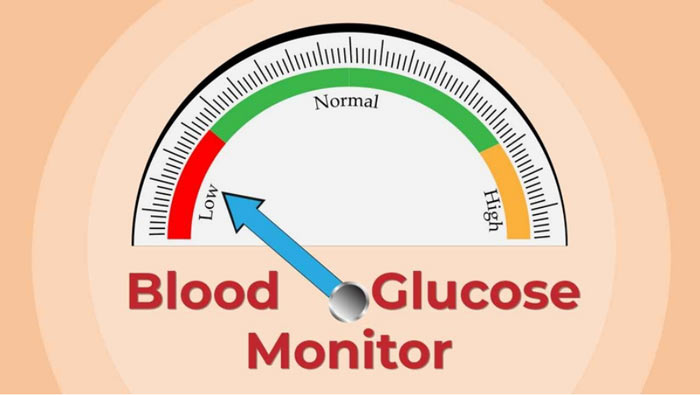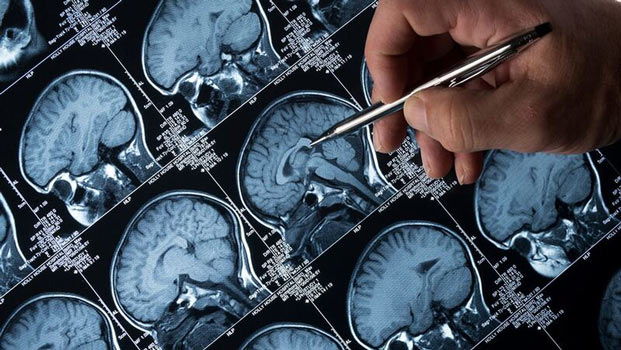Unraveling the Link Between Elevated Brain Glucose and Alzheimer's Severity
Feb 07, 2024 By Madison Evans
Recent research illuminates a compelling link. Higher brain glucose levels correlate with the severity of Alzheimer's disease. Indeed, millions globally grapple with this neurodegenerative condition. The human brain, an astounding marvel of complexity, consistently requires precise nutrient balance to function optimally. Delving into the intricate relationship between elevated brain glucose levels and the progression of Alzheimer's, this article offers valuable insights for improved understanding and potential future interventions.
The Role of Glucose in Brain Function
Understanding the fundamental role that glucose plays in brain function is essential before we delve into the specifics of this link. The brain uses glucose as its primary energy source, thereby fueling a range of cognitive processes. Further, neurons, being the building blocks of our nervous system, depend heavily on glucose to create energy for their intricate communication network. Crucial to cognitive health is optimal balance, and any disruption can yield profound implications.
Glucose, in addition to producing energy, crucially regulates neurotransmitters. These chemical messengers, facilitating communication between neurons, depend on glucose for their synthesis. Thus, the intricate dance of glucose with neurotransmitters is indispensable for maintaining cognitive functions such as mood control, attention management, and most critically, focus. Disruptions in mental well-being and cognitive processes may result from even the slightest disturbance of this delicate equilibrium.
- Neurotransmitter Harmony: Glucose not only fuels neurons but also supports the synthesis of neurotransmitters, influencing mood and cognitive functions.
- Metabolic Harmony: The delicate balance of glucose is not only about energy but also influences the metabolic processes crucial for optimal brain function.
Unpacking the Link - Elevated Brain Glucose Levels
Recent studies have unveiled a significant correlation. Not merely coincidental, but rather substantial between elevated brain glucose levels and the intensity of Alzheimer's disease. The precise mechanisms that underpin this association remain a mystery. However, researchers assume an intriguing theory. Excessive glucose could potentially foster the accumulation of beta-amyloid plaques (a key feature in Alzheimer's pathology). Comprehending this connection offers not only insight into the disease’s progression but also presents us with a promising pathway for targeted interventions aimed at slowing down its advancement.

Further exploration requires the acknowledgment that lifestyle factors, particularly diet and physical activity, profoundly influence brain glucose levels. For instance, a diet rich in refined sugars could elevate glucose. Thereby potentially intensifying the risk of Alzheimer's. Conversely, consistent engagement with physical exercise correlates to superior regulation of glucose, underlining how numerous elements shape brain health.
- Dietary Considerations: High-sugar diets may elevate brain glucose, potentially increasing the risk of Alzheimer's.
- Exercise Impact: Regular physical activity can positively influence glucose regulation, mitigating potential risks.
Connecting the Dots - Alzheimer's Severity and Cognitive Decline
Alzheimer's progression reveals an increasingly evident cognitive decline. Higher levels of brain glucose appear to intensify this decay, potentially hastening the underlying neurodegenerative processes. The impact on cognitive functions, memory, reasoning, and problem-solving, becomes significant. It presents profound challenges for both individuals suffering from Alzheimer's as well as their caregivers. A deeper understanding of the disease trajectory and its implications for cognitive health emerges through active exploration of this connection.
Research suggests an additional factor to cognitive decline in individuals with Alzheimer's, is elevated brain glucose levels. Disrupted sleep is a common symptom of the disease. It may further exacerbate their cognitive difficulties. By comprehending and addressing this intricate relationship, we could potentially unveil new avenues toward enhancing the quality of life for those affected.
- Sleep Impact: Elevated brain glucose levels may contribute to disrupted sleep patterns in individuals with Alzheimer's.
- Quality of Life Consideration: Addressing cognitive decline and sleep disruptions is crucial for enhancing the overall quality of life for individuals with Alzheimer's.
Implications for Treatment and Prevention
Researchers actively explore innovative treatment strategies, aiming to regulate brain glucose metabolism levels in severe Alzheimer's cases, after the revelation of a link between elevated brain glucose and this disease. They also investigate potential impacts on mitigating Alzheimer's progression through lifestyle modifications such as dietary changes and exercise. Understanding the implications of glucose levels, the medical community actively pursues more targeted and effective approaches for managing and preventing Alzheimer's disease.
Emerging research suggests that certain medications targeting glucose regulation may hold promise in the treatment of Alzheimer's beyond lifestyle modifications. These medications, though still in their early investigative stages, signify a novel direction for therapeutic interventions, potentially providing new hope to individuals wrestling with this disease's devastating effects.
- Medication Advances: Ongoing research explores medications targeting glucose regulation as potential treatments for Alzheimer's.
- Therapeutic Hope: Innovations in treatment options provide optimism for improved outcomes in Alzheimer's management.
Future Directions in Alzheimer's Research
One facet of current research in the field explores the connection between elevated brain glucose levels and Alzheimer's severity. Scientists delve deeper to understand an intricate interplay of various factors influencing disease progression. Genetic predispositions, and environmental elements, such as lifestyle choices, all contribute to this complex mosaic of a neurodegenerative condition. The promise of uncovering additional puzzle pieces through ongoing research ultimately leads to the development of comprehensive strategies for treating and preventing Alzheimer's. This pursuit, although challenging, remains steadfastly significant in our quest against this debilitating disease.

The global impact of Alzheimer's underscores the rising prominence of international collaboration in research efforts. Pivotal to accelerating the discovery pace are shared databases, collaborative clinical trials, and joint initiatives. Diverse perspectives and resources unite in this scientific exploration, fostering a more holistic understanding of Alzheimer's multifactorial nature.
- Global Collaboration: International efforts in research enhance the collective understanding of Alzheimer's on a global scale.
- Holistic Perspective: Collaboration allows for a more comprehensive exploration of Alzheimer's, considering diverse factors impacting the disease.
Conclusion
Conclusively, the significant stride in our understanding of this complex health condition comes from the association we establish between higher brain glucose levels and more severe Alzheimer's. The potential for targeted interventions becomes increasingly apparent as researchers continue to untangle Alzheimer's pathology intricacies. Addressing the role glucose plays in disease progression, not only does it empower them with a deeper comprehension but also propels them towards developing effective strategies that alleviate both individual and societal burdens imposed by Alzheimer’s.








